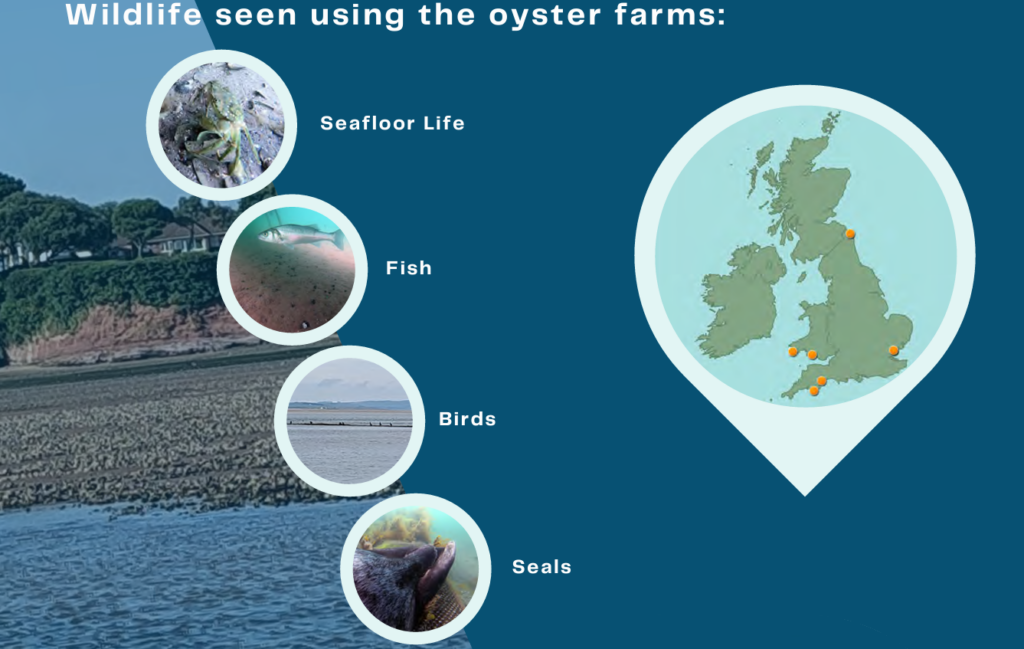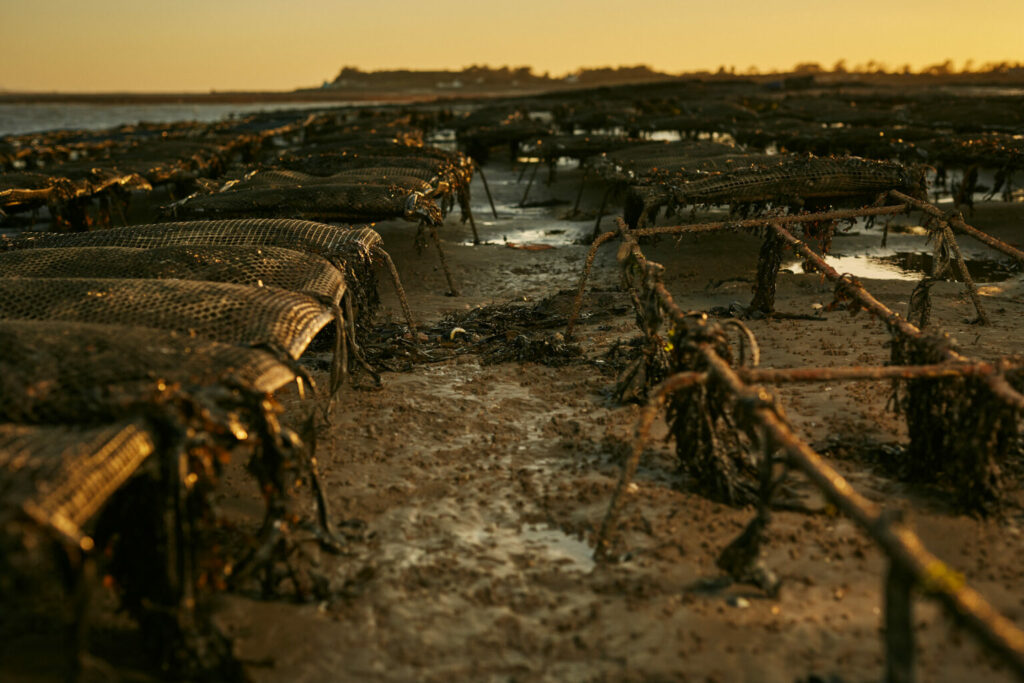

Any oyster farmer will tell you that their farm causes no harm to the marine environment, and in fact has positive benefits for nearby wildlife and water quality – but what’s the evidence that they are right?
A recent scientific study, conceived and led by a group of dedicated oyster farmers, aimed to provide hard evidence for their lived experience of how farming oysters has no negative impacts, and can even enhance biodiversity and water quality in UK waters, leaving the sea in a better condition.

The research, carried out in partnership with Envision Marine Ltd and the University of Essex, with funding from the Company’s Fisheries Charity and the UK government, used underwater cameras, sediment sampling, and ecosystem function tests to zero in on three Pacific rock oyster farms, one naturalised rock oyster reef, and one native flat oyster restoration site.
The findings revealed minimal adverse environmental impacts from rock oyster farming. In some areas, seabed biodiversity was higher at oyster sites than in control areas, with the farms providing habitats that support marine life. The farms also contributed to nitrogen cycling, essential for ecological balance, with microbial communities on oyster shells aiding in nitrogen compound breakdown, as well as dealing with ammonia inputs from the animals themselves. A summary of the findings can be found here.
“We’ve always known that our oyster farms are a force for good in the marine environment. This study finally gives us the data to prove that we’re enhancing biodiversity and improving water quality around us for everyone’s benefit.” Andy Woolmer, Oyster Farmer from Angle in Pembrokeshire
The study’s findings contradict concerns about potential environmental damage. Observations of birds, fish, and marine mammals utilising oyster farms underscore the potential role that oyster farms play in enhancing marine habitats and supporting diverse ecosystems. Amid regulatory uncertainties concerning invasive species, the study supports the industry’s call for balanced policy support, with potential for a revised, nuanced regulatory framework to embrace oyster farming’s sustainability benefits, enabling a boost in production of this low footprint, high value, nutritious seafood.

“Our goal has always been to work in harmony with nature. Seeing birds, fish, and even marine mammals thrive around our farms is incredibly rewarding. It’s no surprise to us that the study shows that sustainable oyster farming is not just a livelihood for us, but a way to positively enhance the marine ecosystem in the estuary.” Tim Edwards, Oyster Farmer from Bantham in Devon
Alongside the positive story for rock oyster farms, the study also revealed the difficulty of restoring native populations. The restoration site investigated had been restocked with both large and small native oysters in the past, but surveys could only find large ones, indicating poor survival, and emphasizing the importance of monitoring in conjunction with restoration to ensure the efforts to enhance survival and development of native oyster populations are effective.